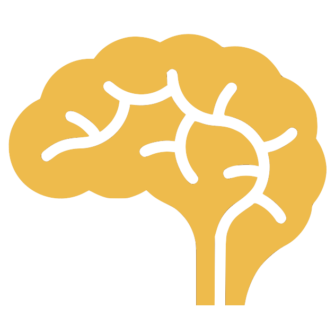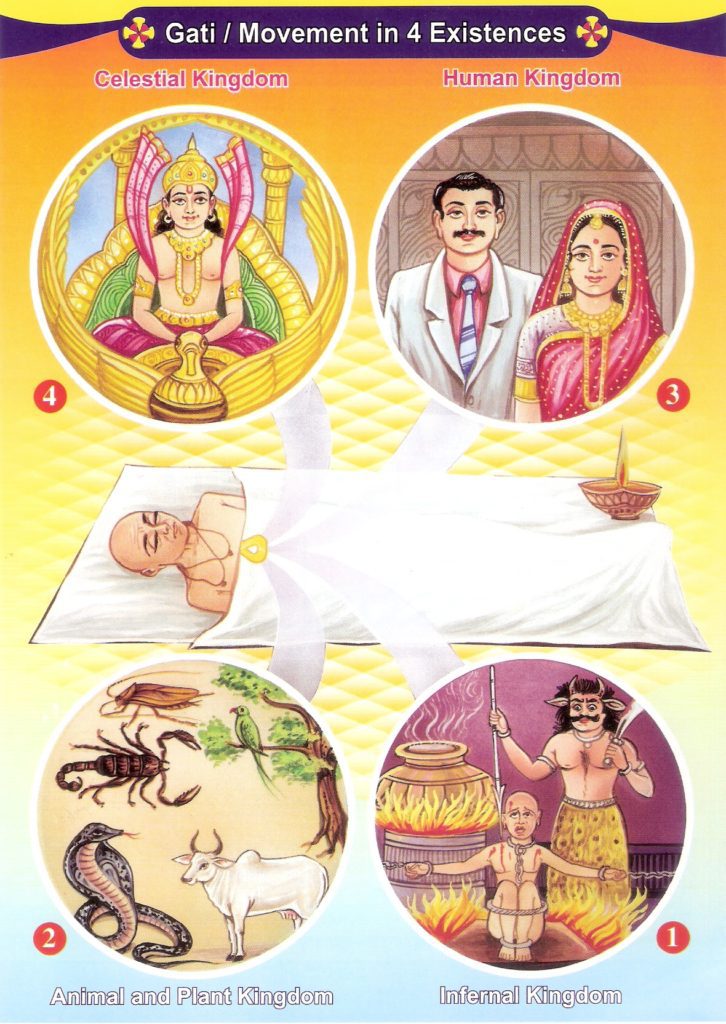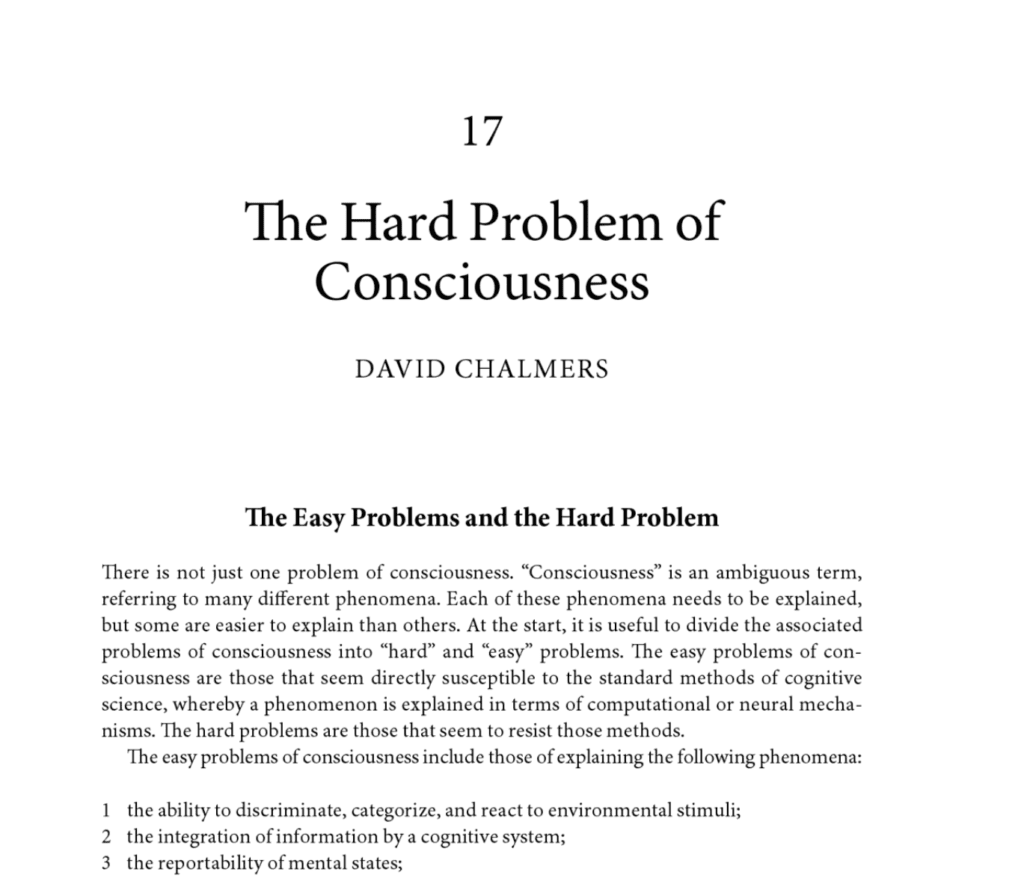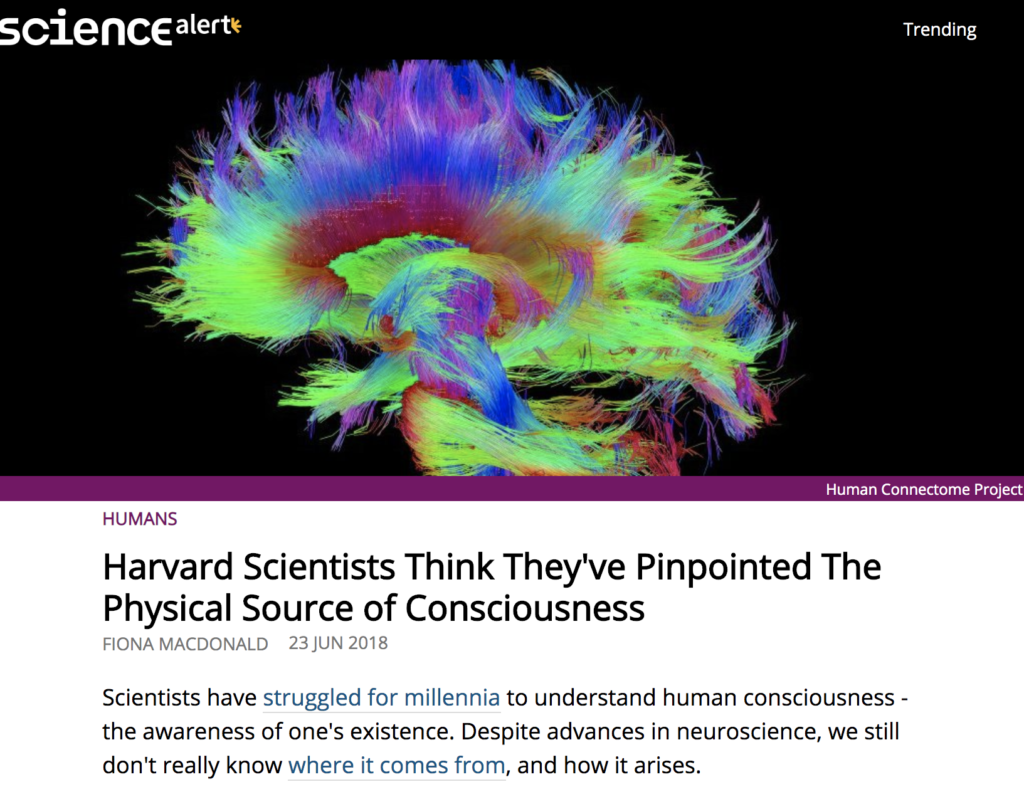Is consciousness produced by the brain? If not, where does it come from?
Socrates and Plato, the ancient Greek philosophers from which western ideas have flourished, believed that the soul was eternal. They also believed in the reincarnation of the soul.
Here, we’ll review the 5 arguments Socrates makes on his deathbed to support this view. Then, we’ll explore the debate he had with one of his interlocutors; a debate which still persists today, 2000 years later:
Does the brain produce the soul (consciousness), or does soul (consciousness) come from somewhere else?
Where Does Consciousness Come From?
Ancient Greek Beliefs
Let’s go back to around 500 BCE, Ancient Greece. The city-state of Athens has adopted a polytheistic religion, which means that people feared, worshiped and made offerings to many different gods; Zeus, Poseidon, Athena, etc.
The Ancient Greeks also believed that upon death, the soul would leave the body and travel to the underworld, remaining there forever, as mere shadows guarded by Hades, the god of the underworld.
But there were also obscure groups of people who believed differently in regards to the soul. They believed in ‘metempsychosis‘ or the ‘transmigration of the soul’. In this view, the soul will depart the body at death and re-enter another body, in a perpetual cycle. These small pockets of people were the Pythagoreans (those who followed the teachings of the Greek philosopher Pythagoras) and the Orphics (the adherents of a religion based on the mythical poet, Orpheus). These groups and beliefs existed in the minority.
Hindu Origins?
How these groups obtained their views is not exactly known, but I can’t help but think of India, which is geographically not so far away.
See the philosophical concept of transmigration, also known as reincarnation, already existed in India 500 years earlier. India is where Hinduism was born, and from it, Buddhism and Jainism, which also view the soul as something that transfers from body to body (reincarnation).
The general belief in these Indian religions, which are still predominant all over Asia (I say “general” because details in them will vary), is that we are all bound to an endless cycle of birth and rebirth. What you do in this life, will dictate your next. By doing good, you gain good Karma (think of is as points) and you will be reborn in better conditions, be it in the form of a body or in a heavenly realm. If your actions and intentions are bad, you gain bad karma, which will lead to worse conditions in the next life. Again, in the bodily or spiritual form.
And this goes on …. forever.
But there is a way to liberate oneself from this never-ending cycle, which is also referred to as Nirvana or Moksha, and it usually consists of deep self-realization as well as living an ascetic life, letting go of all attachments.
Now, Socrates never spoke about exiting the cycle, but he did believe that living an ascetic life of un-attachment, which he calls “being a TRUE philosopher”, will get you the best outcome after death.
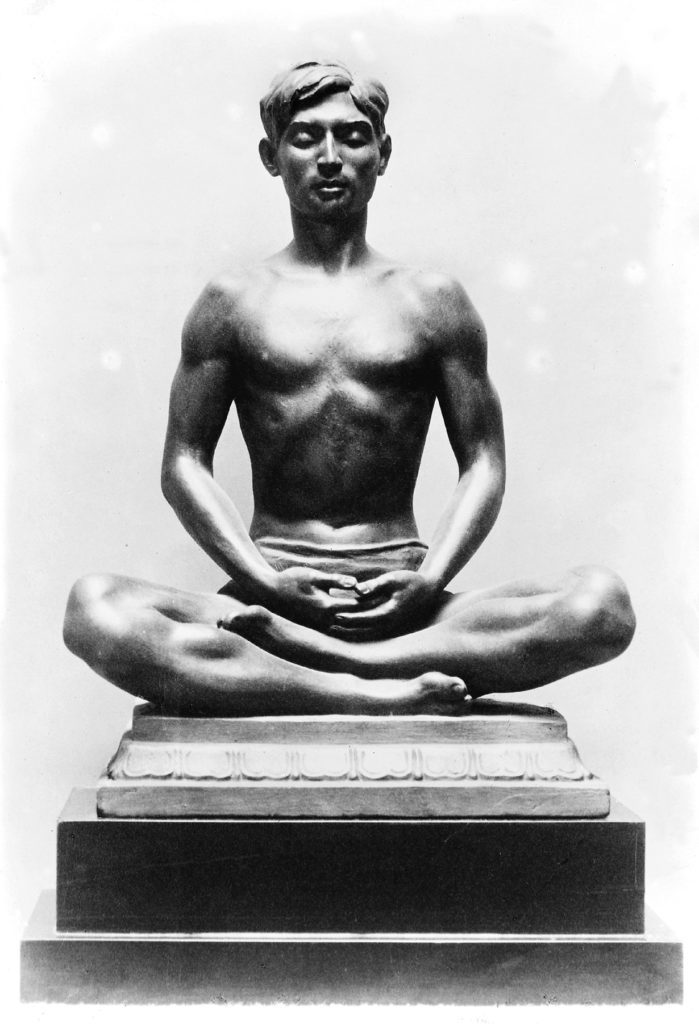 Bronze figure of Kashmiri in Meditation by Malvina Hoffman. Credit: Wellcome Library, London
Bronze figure of Kashmiri in Meditation by Malvina Hoffman. Credit: Wellcome Library, London
Just a Reminder on Socrates and Plato
Ok so let’s make something clear before we continue; Socrates was a famous philosopher of the streets of Athens, but he never wrote anything. Everything we know about him or the things he said comes from different writers, most notably his devout pupil Plato, who wrote many dialogues featuring Socrates as the main character.
One of Plato’s dialogues is called Phaedo, which recounts Socrates’ last moments in his jail cell before being put to death by hemlock, ordered by the city.
In his jail cell, and surrounded by his weeping friends, Socrates reassures them that his death is not a sad moment. In fact, he argued that death is the moment for which ‘true philosophers’ practice their whole lives. Unlike the non-philosopher who is attached to the body and the material world, the ‘true philosopher’ is interested in the soul; and death is the separation of the soul from the body.
Socrates tells his interlocutors that because he has lived the life of a ‘true philosopher’ – seeking knowledge and abstaining from materials and fleshly lust – once he dies, a heavenly realm called the ‘Upper Earth’ will await his bodiless soul, where he will live among the gods and where things are fairer, smoother and better.
(According to Buddhism, he hasn’t reached Nirvana, just the godly realm)
Socrates also tells them that all souls, once departed from the body, gather into the underworld and are escorted by a guide through a “zigzagging path”, and arrive at their deserved destination, be it in the lower world of Tartarus, or the upper world of the gods, or back into the body of a human or animal. And once their times have been fulfilled, guides would escort them back to redo the same process all over again. For eternity, souls live on and weave through bodies and realms.
(I find this pretty interesting because the process he describes is nearly identical to the eastern religion’s, only with a Greek and even Egyptian mythological flair to it)
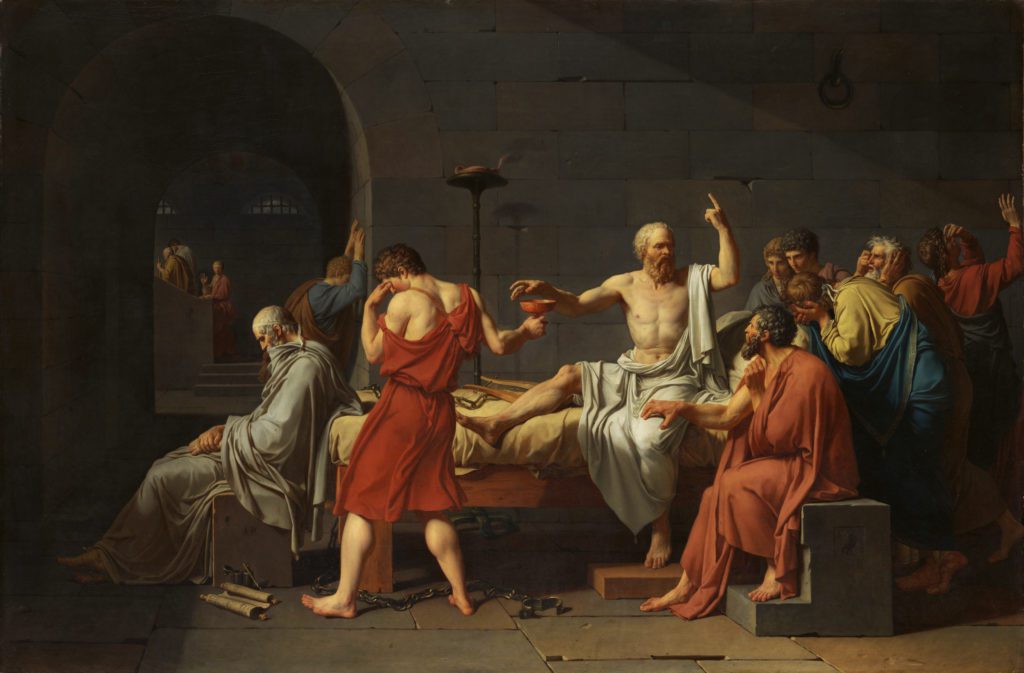 The Death of Socrates by Jacques Louis David. https://www.metmuseum.org/art/collection/search/436105
The Death of Socrates by Jacques Louis David. https://www.metmuseum.org/art/collection/search/436105
But some of Socrate’s listeners were not convinced by his ideas on an eternal soul and on reincarnation. So, Socrates makes his case with these arguments:
Socrates’ 5 Arguments for
the Eternal Soul (Consciousness) and Reincarnation
1) Cycle/Opposition Argument
His 1rst argument states that there is a cycle of life and death. All things that have an opposite are generated out of their opposites. Largeness comes from smallness through the process of increase. And smallness comes from largeness through the process of decrease. The process is the passage into one and out of another.
This process is true for all opposites. There is a wax and wane between them which illustrates a cycle. Opposites cycle perpetually. This is a fundamental law in the Yin Yang philosophy, where at the height of yin, there is a seed of yang where yang will begin. And vice versa.
To support this argument, Socrates asks: “Since falling asleep comes from having been awake, and waking up comes from having been asleep, shouldn’t it be the same process for the opposites of Life and Death?”
According to this law, there is a “birth” from “death” to the world of “living”.
Like many ancient eastern philosophers, Socrates believes that life follows a circular pattern.
“If generation were in a straight line only, and there were no compensation or circle in nature, no turn or return of elements into their opposites, then you know that all things would at last have the same form and pass into the same state, and there would be no more generation of them…
For if the living spring from any other things, and they too die, must not all things at last be swallowed up in death? ”– Socrates
Ok, so this argument illustrates that death turns into life, but we all know that a dead person does not come back to life. Socrates believes that the eternal soul weaves through life and death.
Still, this cycle doesn’t prove that the soul is eternal. And it doesn’t prove that the soul jumps from one life to another. So, Socrates used another concept to explain the transmigration of the soul.
He says that our soul actually existed before we were born. This is:
2) The Recollection Argument
According to Socrates, we are able to recognize ‘forms’ because our souls experienced them prior to our birth.
Ok, so we need to understand what ‘forms’ are.
See, Plato believes that our ‘reality’ is constructed based on ideals; abstract ideas that are absolute, eternal and unchanging, which he calls ‘forms’. Forms are immaterialized; they cannot be replicated in our world, but they are used as the perfect example to make a thing and to compare from.
So bring yourself back to 400 BC, where our technology did not exist. Straight lines did not exist in “nature”. In fact, even today a straight line on the computer, zoomed in enough, is never really a straight line!
However, we can perceive ‘straightness’ in our minds, and can thereby detect any deficiency from “straightness”.
Socrates says that this ability to perceive ‘straightness’ comes from a knowledge prior to our birth and ultimately from when the soul belonged to the realm of ‘forms’ or ‘absolutes’.
This applies to ALL forms; Justice, Largeness, Beauty… These absolute ideals don’t exist in the destructible “reality” we exist in, but they are examples we have known from before our birth and have forgotten at birth. Socrates says that through living and philosophical exercise, we are able to re-understand them, and not because we are learning something new, but because we are recalling something we already knew (we’re bringing knowledge back into the mind)
“…for knowing is the acquiring and retaining knowledge and not forgetting… those who are said to learn only remember, and learning is simply recollection.”
– Socrates
So far, Socrates attempted to prove that there is life after death and that the soul existed prior to birth. Still, this does not convince some of his interlocutors that the soul lives on forever. So he tries to prove its permanence with these next two arguments (‘Affinity argument’ and ‘Essential form argument’):
3) Affinity Argument
There are two types of things. Those that can be seen such as a man, a horse or a flower. These things are dissolvable (not permanent). And there are things that we cannot see, like the idea of Justice, Goodness, or Beauty. These ideas are eternal.
Now, Socrates says that when we take the example of a person, there are also two things; the body and the soul. If the body is the ‘seen and dissolvable’, then the soul which is ‘unseen’, should be ‘eternal’.
4) Essential Form Argument
Another argument Socrates uses to convince that the soul is eternal is with the concept of Essential Form (vs Non-Essential form).
In Plato’s Phaedo, Socrates reminds us that everything participates in a ‘form’. A globe or marble participates in the form of ’roundness’. It’s the ‘form’ that makes the thing what it is. A thing can participate in a ‘form’ at one time, and in its opposite at another time. Forms never become its opposite.
Cindy can participate in ‘justice’ one day and in ‘injustice’ another day.
When tea turns cold, it’s the form ‘hot’ that recedes and the form ‘cold’ that takes place. The tea participates less in ‘hot’ and more in ‘cold’. When something is receiving the opposite of the form it contains, the current form goes elsewhere OR disappears.
BUT some things don’t work that way!
Some things can only participate in one form and one form only. And here, Socrates uses ‘fire’ as an example; fire participates in the form of ‘hotness’ but it will never participate in the form ‘coldness’. Fire’s essence is hotness.
He also uses the number 3; it participates in ‘odd number’ but it will never participate in ‘even number’.
Socrates says that it is the same for the soul; It will never participate in ‘death’, only in ‘life’.
Just like how fire’s main quality is ‘hotness’, the soul’s is ‘life’. The soul is the bringer of life, the essence of life (similar to the Qi in the Yinyang philosophy). Therefore, when death comes, “life” which is the soul does not disappear but goes elsewhere.
5) Controlled Body Argument
By now, all of Socrate’s visitors were convinced, except for one: Simmias.
Simmias suggested a theory which he compares to the lyre, a popular instrument in ancient Greece. He proposes that it’s the unique assembly of the instrument elements, including properly tuned strings, the frame, and the movements of the players’ fingers, that produces harmony.
If the instrument was broken or non-existent, there would be no harmony. So, what if it is the same for the soul? What if the soul is just a product of the correct assembly of the body’s elements?
But Socrates refutes this argument in a couple of ways. First, he reminds Simmias of the ‘Recollection argument’ which he had already agreed on.
If you agree that the soul existed prior to our birth, it therefore cannot arise from the body’s makeup.
Next, he identifies that harmonies come in degrees; a sound can be more or less harmonious (or in discord). But the soul does not come in degrees – it’s either a soul or it isn’t (it’s binary).
Finally, he reminds the Simmias that harmony cannot affect the elements that create it, whereas the soul can order the body, even against its nature. For example, the soul can force the body to train for the Olympics. The soul can also refrain the body from eating – against its nature – because it wants to give to the homeless instead or to protest a cause.
To Socrates, essentially, if the soul can order the body, it must have come from elsewhere.
Of course, Socrate’s arguments are debatable. I could think of one or two things I would contest, especially with the scientific knowledge we have today. But that’s the thing, we have a lot more knowledge today, 2000 years later.
Yet, with all our knowledge, there is still no consensus among the scientific community on this very issue; the body and soul;
What is the soul (consciousness) and where does it come from?
For most of human history, this question was for philosophers to investigate and for religions to answer. It wasn’t until the end of the 1900’s that the science world began to tackle the subject. While the word ‘soul’ can still be used, the terminology has been replaced with the concept of ‘consciousness’, ‘mind’ or ‘experience’.
Plenty of scientific studies were undertaken and results have favoured Simmia’s bottom-up approach. However, in more recent years, more and more experts are challenging this materialist view. And because of this, the debate held by Socrates and Simmias remains. Only, it’s a tad messier, as views are numerous and aren’t entirely polarized nor black and white. Let me explain these views as simply as possible:
The 7 Main Views On Consciousness
Materialist (Bottom-Up)
So we have the Materialist. This is essentially Simmias. The materialist scientists believe that consciousness is an emergent property produced by the brain’s elements and circuitry. To them, it’s no brainer (no pun intended), specific areas of the brain are activated during specific thoughts or emotions.
Problem Acknowledger
And then, there are experts like philosopher David Chalmers, who believe that there is a hard problem to consciousness (he calls this ‘The hard problem of consciousness’). Materialists’ claims are based on correlation (for example, when we’re in fear, this part of the brain is active…), but correlations don’t explain why and HOW consciousness arises from the physical processes of the brain.
Consciousness as Fundamental (Top-Down)
Then, there are scientists who lean towards the idea that consciousness originates at the quantum level – the deepest structure of natural laws of the universe. They propose that consciousness could be the building blocks of the universe. In other words, the universe is fundamentally “consciousness”.
Parapsychologist (Top-down)
There are also doctors who work in parapsychology, so were’ talking about near-death experience, children remembering past lives, etc… and though they may not be taken seriously by the scientific world, they too don’t buy that consciousness is a product of the brain, by virtue of these experiences.
“Self is an Illusion”
Some experts argue that the sense of self is just an illusion coming from our senses, thoughts and feelings. And it’s possible to transcend the self, in other words letting go of the ‘self’ and be identical to the experience. This understanding of the nature of human consciousness is also called ‘enlightenment’.
Panpsychist (Degrees)
And we have the Panpsychists. This new-age sounding word doesn’t do justice to its belief. Pan meaning “everything” and Psyche meaning the “soul/mind” suggest that everything has a certain degree of consciousness; birds, plants, even molecules… though what constitutes this “everything” is largely debated.
Mysterian
And there are the Mysterians. They feel that the hard problem of consciousness is not solvable by humans. It’s something beyond our comprehension just like our language is beyond a mouse’s comprehension. Some believe that it will never be solvable, and others believe it could be solved, but just not anytime soon.
Daring Questioner
And last but certainly not least, there are those I call the Daring Questioners. When facing a fragile scientific mystery, they believe that going against the status quo may be a good way of solving the problem. For some, this means ‘going against the public intuition’. For others like Einstein, it means ‘going with your personal intuition’. And for people like Chalmers, it means ‘giving a chance to the crazy ideas out there’.
As I mentioned earlier, it’s not black and white; these specialists don’t just adopt one single idea on consciousness. For example, Richard Dawkins, a Materialist, also admits that consciousness is hard to define, both in the world of science and philosophy. Eben Alexander may sound cuckoo because he speaks of near-death experiences, but he also views consciousness as multi-level and a primordial constituent and generator of the universe. Chalmers acknowledges a problem with consciousness but entertains the idea of it being fundamental to the universe.
Though a part of me wants to take the Mysterian stance, I have to be honest… these connected scientific opinions only seem to reinforce Platonic and Indian concepts of reincarnation of an everlasting soul.
Hmm, let me recap on why I feel this way…
Reasons that Reinforce the Idea of Reincarnation and an Everlasting Soul (Consciousness):
- There is absolutely no evidence that matter produces consciousness. None.
- The quantum theory that consciousness could be the building block of the universe would explain the idea of the soul as ‘eternal’, ‘absolute’ and ‘the giver of life’
- And if consciousness is the base, the general idea of panpsychism (everything is conscious to a certain degree) would make sense
- Panpsychism works in the top-down model, but also the bottom-up; the computational makeup of a lizard is different than that of a human, making its consciousness level different.
- It’s been suggested that consciousness could follow the radio-wave model. When you turn off a radio set, the radio wave is still there. Perhaps, different types of beings are just like different types of radio sets, experiencing differently.
- And if consciousness is experienced differently and by different things, the concept of reincarnation would also make sense.
- The Buddhist idea of exiting the cycle of reincarnation by reaching enlightenment contends with the scientific view of ‘the self as an illusion of senses’. Both of these views agree that it is possible to rid of the self.
- Both approaches – top-down and bottom-up – can work together; things produce their own kind. Cats produce cats. Consciousness produces consciousness
Yes, there are many gaps to fill. These are just propositions of course… but they’re not dismissable.
Science, the study of physical matter, has become the standard for finding truths, but it does grind to a halt when dealing with the non-physical. The truth of the matter (no pun intended) is that there exists another study; the study of the non-physical, of the mind; and that’s philosophy.
Philosophy has existed for thousands of years; it’s exercised by street philosophers like Socrates, academics like Plato and spiritual leaders like the Buddha. Philosophy is the study of fundamental questions ranging from knowledge to existence. Just like science, it also deals with rigorous critical thinking, rationality and reasoning. The difference between science and philosophy is that one deals with testing the physical world, and the other with testing the non-physical world.
Socrates, Plato, and Eastern mystics have continuously claimed that truth lies not in the visible but in the non-invisible. Other intellectuals have said that it lies in between the two.
Regardless, nature is about balance, so the least we could do is to seek it when searching for truths. That means paying attention to the mind just as we do to matter.
Further Reading & Sources
- Johnson, P. (2011) Socrates – A Man for Our Times. New York, NY: Penguin Group.
- Plato (1998). Phaedo (A. Clarke, Trans.). Indianapolis, IN: Focus Publishing.
- Chalmers, David J. (2018) The Meta-Problem of Consciousness. Journal of Consciousness Studies https://philpapers.org/archive/CHATMO-32.pdf
- Paulson, Steve. “The Spiritual, Reductionist Consciousness of Christof Koch.” Nautilus. 6 Apr. 2017. http://nautil.us/issue/47/consciousness/the-spiritual-reductionist-consciousness-of-christof-koch
- Rosenbaum, Ron. “The Dangerous Mysteries of Consciousness” Slate. 30 Nov. 2009. https://slate.com/human-interest/2009/11/the-unsolved-mysteries-of-consciousness.html
- Dawkins, Richard “The Riddle of Consciousness” Big Think. 23 Oct. 2009. https://bigthink.com/videos/the-riddle-of-consciousness
- “John Searl on Consciousness.”Brainpickings. 26 Apr. 2012. https://www.brainpickings.org/2012/04/26/john-searle-on-consciousness/
- Ratner, Paul. “Why a ‘genius’ scientist thinks our consciousness originates at the quantum level” Big Think. 15 Jan. 2018. https://bigthink.com/paul-ratner/why-a-genius-scientist-thinks-our-consciousness-originates-at-the-quantum-level
- Ratner, Paul. “Albert Einstein’s Surprising Thoughts on the Meaning of Life” Big Think. 12 Mar. 2017. https://bigthink.com/paul-ratner/albert-einsteins-surprising-thoughts-on-the-meaning-of-life
- “Spiritual Inspiration from Albert Einstein” Uplift. 10 Feb. 2019. https://upliftconnect.com/spiritual-inspiration-from-albert-einstein/
- “Jim Tucker – Children’s Reports of Past-Life Memories” Consciousness Congress. http://consciousnesscongress.org/speaker/jim-tucker/
- “Is Consciousness Guiding the Universe? – Prof Stuart Hameroff” The Scientific & Medical Network. https://explore.scimednet.org/index.php/is-consciousness-guiding-the-universe-prof-stuart-hameroff/






